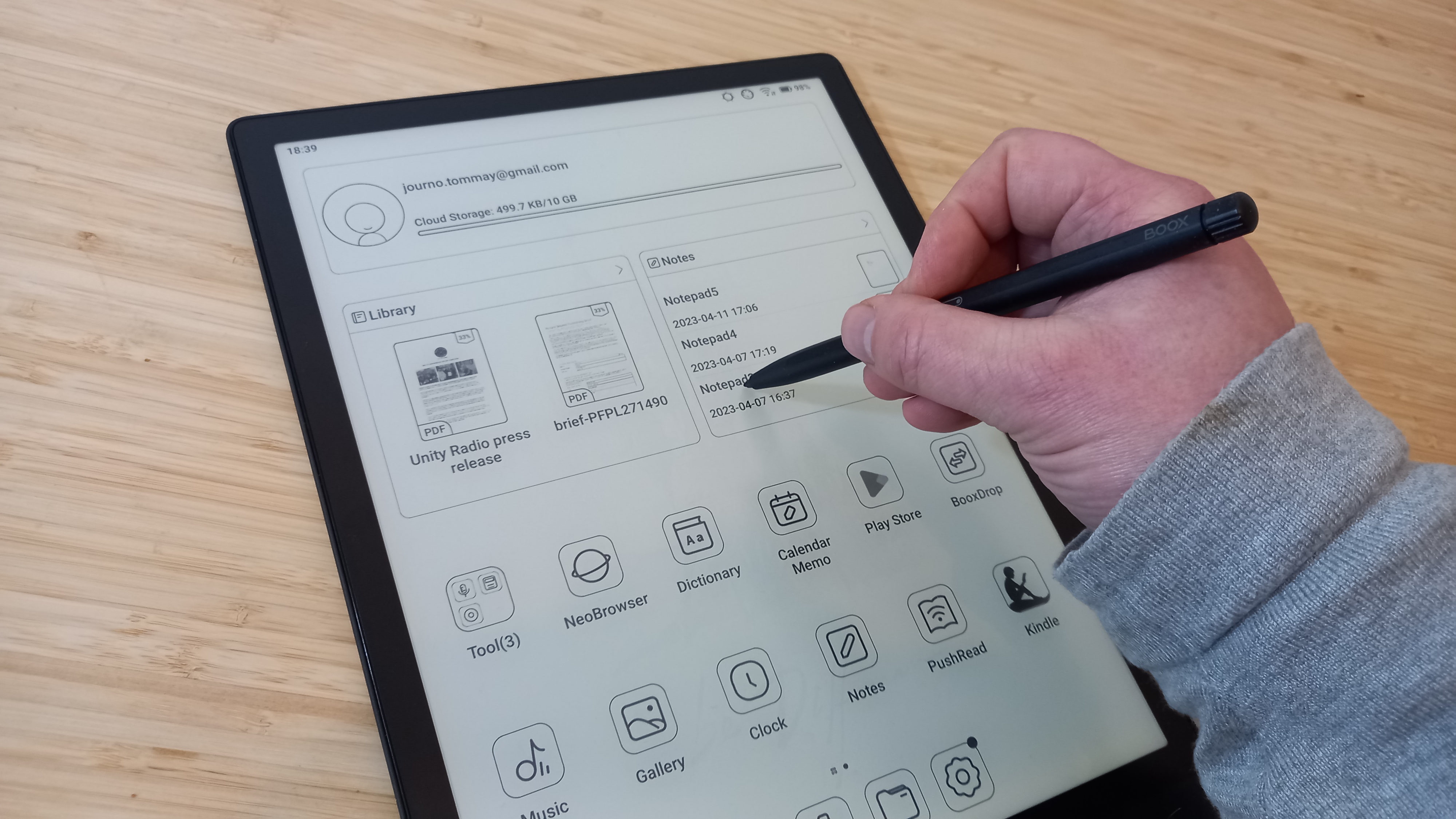
CPU: 8-core, 2 GHz
RAM: 6GB
Storage: 128GB
Screen: 13.3-inch E Ink Carta 1250 display panel with a Mobius flexible e-paper display
Resolution: 1650 × 2200 dots (207ppi)
OS: Android 11
Battery: Li-on, 6300 mAh
Connectivity: Wi-Fi IEEE 802.11 b/g/n/ac
Dimensions: 310 × 228 × 6.8mm
Weight: 560g
You may not have heard of Onyx, the maker of the Onyx Boox Tab X, but the Chinese manufacturer has been developing ereaders and digital note-taking tablets since 2008. The Onyx Boox Tab X is its highest-specced tablet to date and, well, it's a bit of an oddity.
It comes with a stylus and the display comes overlaid with a beautifully intricate pencil drawing, so at first glance, you assume it's an art tablet. But while you can draw with it, that's not really what it's for. So spoiler alert: this is not going to make it onto our list of the best drawing tablets.
So what is it good at? Essentially this is a device for e-reading and note-taking, powered by Android 11. There are plenty of those on the market, of course, but this one is distinguished by its generous 13.3-inch screen, which gives you an area close to A4 size to scribble notes and read e-books on.
If that sounds good to you, then let us warn you of two things. Firstly, this is an E-ink tablet. So rather than the high-resolution colour screen you'd normally get with an iPad or Android tablet, this is essentially the same kind of monochrome experience you'd get from a Kindle or Nook. On the plus side, that means your notes and e-books feel more paper-like. On the downside, things like apps, websites and videos look quite weird.
The second thing to warn you of is the price. The Onyx Boox Tab X costs $879.99 / €949.99 / £879.99 at the time of writing. That's an awful lot to pay for a tablet, especially when it doesn't come with a case: see our guide to the best budget tablets by way of comparison.
At the same time, though, this device does have some pretty unique features, which means that for some people, the extra spend may be worth it. Read on to find out what those are, what my personal experience with the Onyx Boox Tab X has been like, and what kind of person this tablet would best suit.
Design
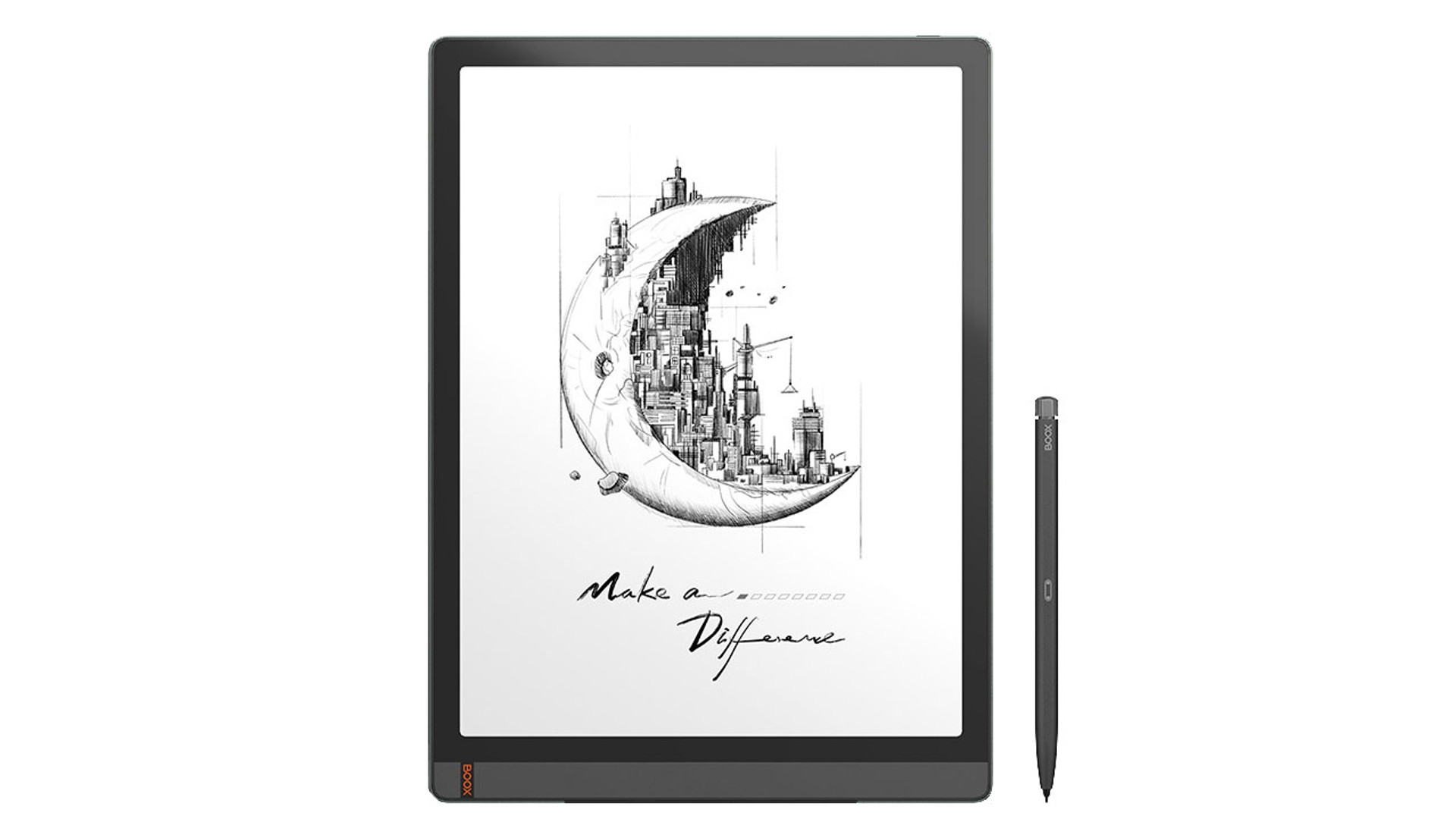
The Onyx Boox Tab X features a generous, near-A4-sized screen while still remaining ultra-thin at just 6.8mm. Style-wise, there's not a lot to write home about. It's essentially a black rectangle, which makes it either basic and boring or beautifully minimalist, depending on your point of view.
But the outer frame has a nice tactile feel to it. The screen-to-bezel ratio feels well-balanced. And the moment you pick it up, it feels natural to hold it as an e-reader or note-taking device.
There are a few little niggles, though. Firstly the weight, at over half a kilo, might tire your arms if you're planning to do a lot of reading in bed or on the sun lounger. Secondly, while this tablet does come with two speakers, there are no volume controls (physical or virtual). So your only option if you want it to go louder, as far as I can see, is to connect up a Bluetooth speaker and control the volume that way.
Finally, note that the only port on this tablet is a USB-C slot, for both charging and data transfer. So for example, there's no audio jack for plugging in headphones; you'd need some USB-C headphones or an adapter.
Notetaking
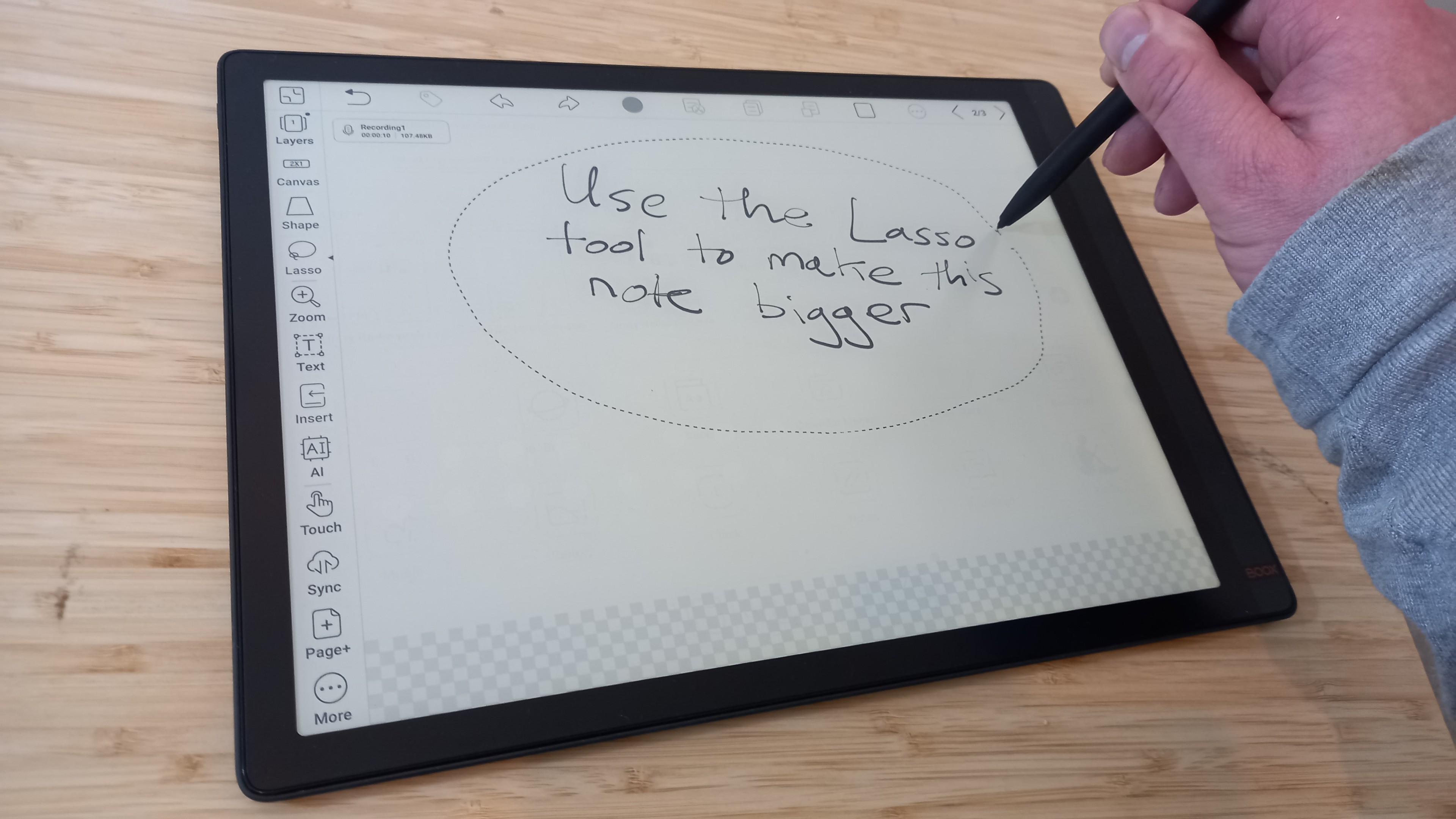
The Onyx Boox Tab X's main reason for existence is note-taking. And in this arena, it really delivers.
The dedicated Notes app is front and centre of the interface, and as I'd hoped, it was entirely natural and instinctive to use. Rather than wasting time sitting through video tutorials, I just opened it up and started playing around.
All the icons along the top and left-hand side were self-explanatory, and I found it easy to change things like line thickness or brush type in the included stylus, the Pen-2-Pro. This offers 4,096 degrees of pressure sensitivity, along with tilt sensitivity, and worked well for note-taking, scribbling and sketching.
The feel was very close to pen on paper, with marks getting firmer the more you press. Because the screen is protected by a layer of glass, you don't have to worry about pressing too hard. And there's an eraser on the end of the stylus too, so it feels easy and natural to wipe out any mistakes.
You can do a ton of stuff in this interface. You can, for example, work with layers and draw lines and shapes with the Shape tool. You can use the Lasso tool to move notes around the screen or make them bigger and smaller. You can insert pictures, voice notes, and links to websites. And you can use the AI tool to transcribe your handwriting into text. You need to be fairly neat for this last one to work – it struggled with my scrawl – but it's fun to use, nonetheless.
PDF annotation
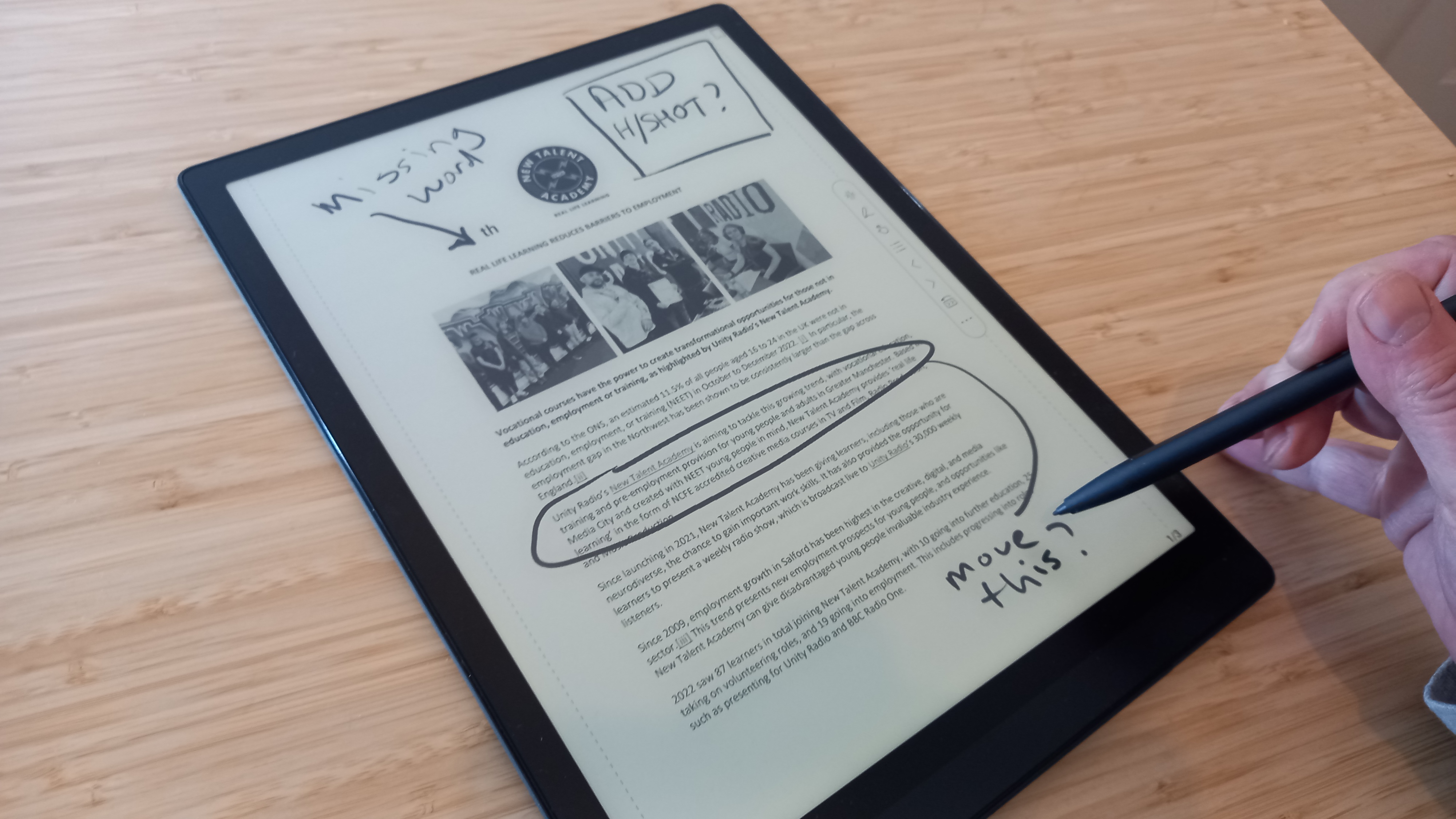
If you were looking for a 'killer app' for this tablet, then it's PDF annotation. Doing so couldn't be easier: just open the PDF and start scribbling. It feels as natural and easy as grabbing a piece of paper and scribbling on it with a physical pen. But because you're working digitally, you also get a load of nifty tools, similar to those in the Notes app.
These let you do things like draw shapes, change brushes and move notes around, and they're all readily available in a customisable, floating toolbar. Oh, and if you don't want to hand-write your notes, there's always the option of just typing them on a virtual keyboard.
That's not the best bit, though. The best bit is the split-view function where you can put two PDFs side-by-side, and work on either or both. This would be helpful if, for example, you had two versions of the same design you were comparing and contrasting.
Ebook features
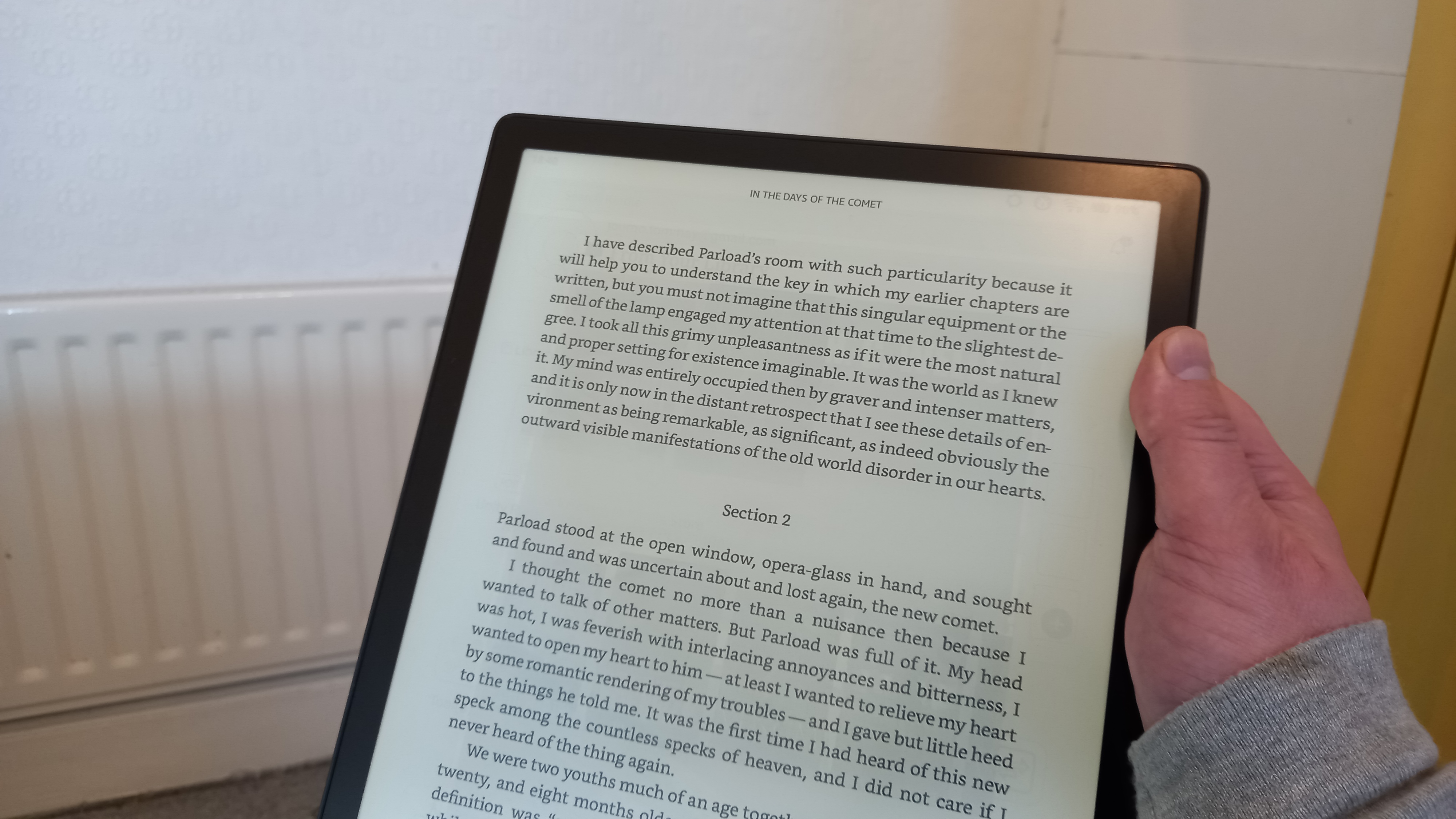
Aside from making notes, the other main reason you might want an E-ink tablet is for reading e-books. And, as you'd hope at this price, it's something the Onyx Boox Tab X does very well indeed.
The high-end E-Ink display provides a resolution of 2200 x 1650 (aka a pixel density of 207dpi) which means text, diagrams and images are detailed and crystal clear. The lighting is impressive too: with a choice of cool and warm light, I found it worked well in both low light and darkness. Unlike previous Onyx E-Ink tablets, it also offers an auto-rotate function.
The large screen means it's not just good for reading 'normal-sized' publications but also large-format ones like reference books, newspapers and magazines (albeit in monochrome rather than colour). It also makes it a good choice for people who have trouble seeing and need to zoom in on text to make it readable. On the downside, as I mentioned earlier, its weight might make long stints of reading a bit of a chore.
Other features
Aside from note-taking and e-reading, the Onyx Boox Tab X can do pretty much all the other things you'd expect from a normal (i.e. non-E Ink) tablet. It comes loaded with the Google Play Store, runs Android 11 and so whether you want to edit a document, do some digital painting, listen to a podcast or watch a video, it's technically possible.
We say 'technically possible' because in many cases, these things can feel odd, due to the nature of E Ink. Watching a YouTube video on this device, in monochrome and with constant ghosting going on, is a particularly baffling experience.
So what about making art with the stylus? Well, you can do it, and it works fine. But it really doesn't feel like that's what this device is for, given that there's no native drawing app and the screen is in black and white.
Performance
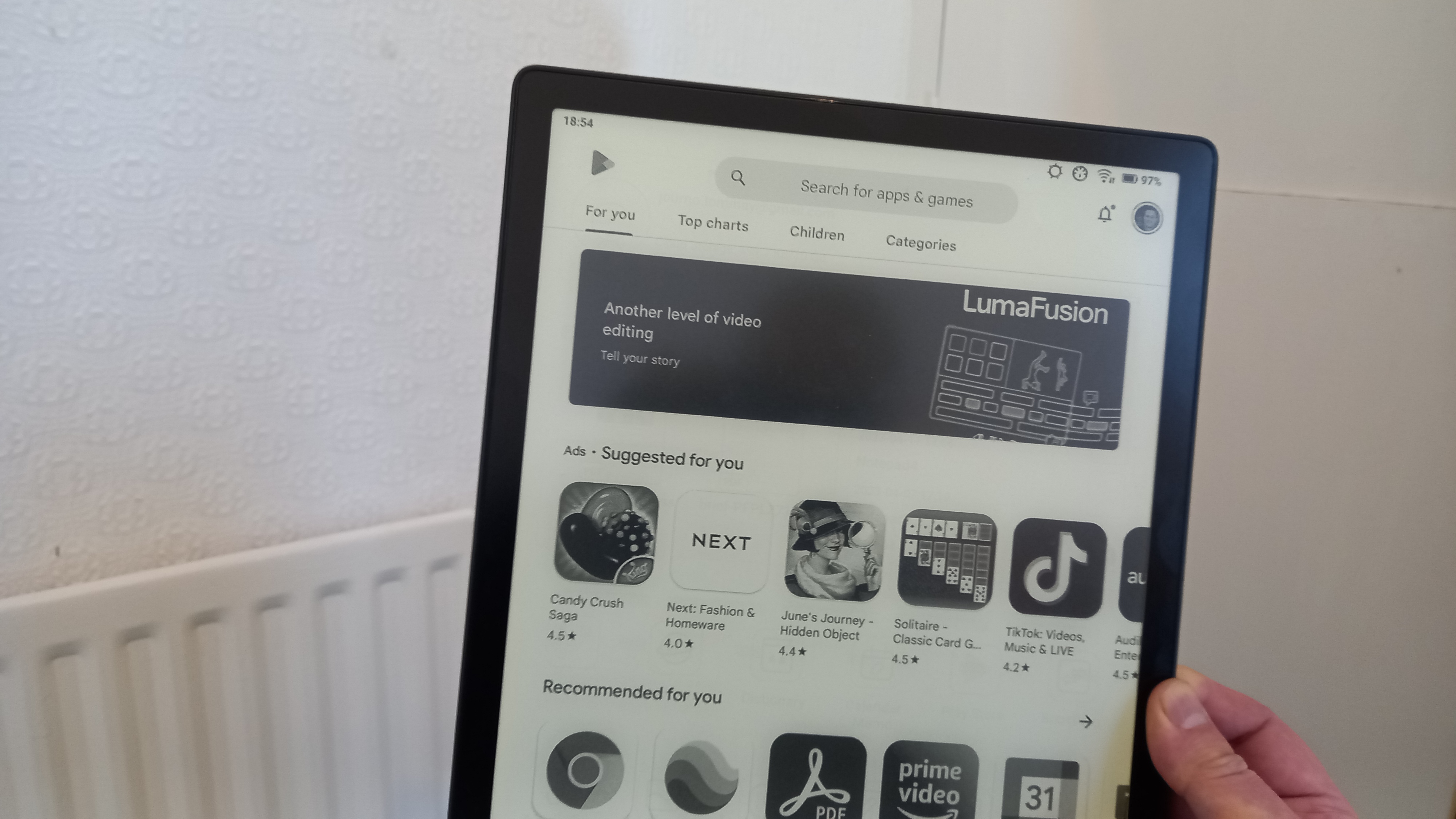
The Onyx Boox Tab X runs Android 11 and comes with a Qualcomm Snapdragon processor, 6GB of RAM and 128GB of internal storage. And what this all adds up to is the fastest and smoothest computing experience I've experienced on an E-Ink tablet, bar none.
Onyx needs to be applauded for making everything work together well, and I experienced zero lag or wait time, whether opening an app or taking notes with a stylus. Battery life is amazing too, thanks to a 6300mAh battery, which Onyx claims is the largest ever found on an e-ink device.
There's only one issue with performance, but it's potentially a big one. There's a smearing effect – a faint outline of the page you were just on – every time the screen changes. On the one hand, it's something you could see as quite charming; on the other, it constantly reminds you you're not using a 'proper tablet'. (Apparently, there are ways to remove the ghostly image by pressing buttons in the interface each time. But personally, I didn't feel it was worth the effort.)
Should I buy the Onyx Boox Tab X?
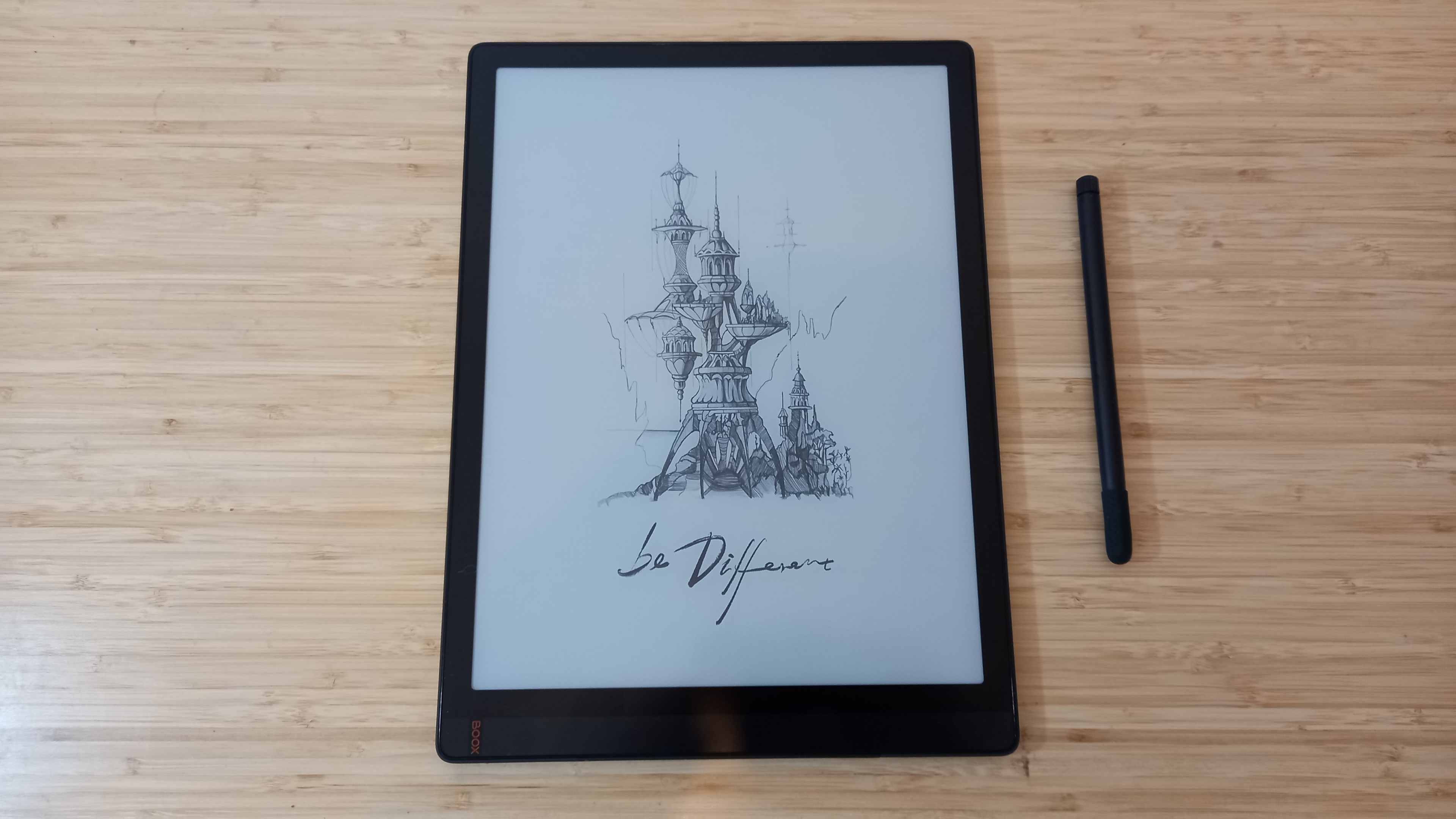
The Onyx Boox Tab X is a strange fish which is difficult to sum up in a neat sentence. If you're looking for an E-Ink tablet for note-taking, whether that be handwriting, sketches, diagrams or just scribbles, I've not experienced finer. If you do a lot of PDF annotation, you'll love doing it on this device. And if you have unlimited funds, and these are your prime reasons for owning an E-Ink tablet, I'd say knock yourself out.
Most of us, though, have to be a bit more careful with our pennies, and I'd say that almost $900 / £900 for a tablet that's good for notetaking, annotation and e-reading but not much more, feels like a stretch. In which case, if the near-A4 size isn't that important to you, you might be better off exploring Onyx's smaller but more affordable Note Air 2 or Note Air 2 Plus.







